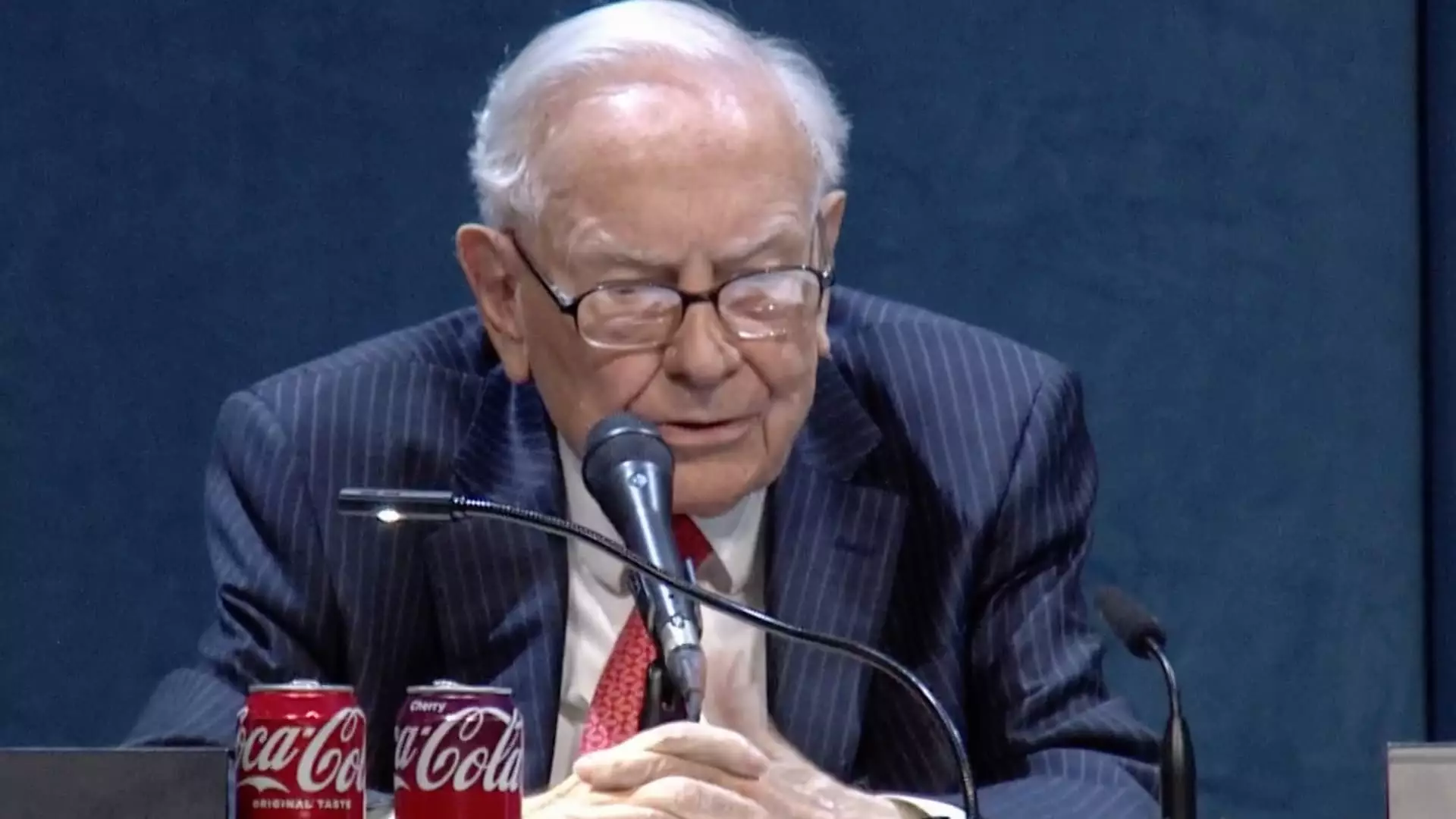Warren Buffett, often lauded for his unmatched investment acumen, once foreshadowed a triumphant continuation for Berkshire Hathaway in the wake of his eventual departure. However, reality has cast a startling shadow over this prediction—since announcing his intent to pass the torch to successor Greg Abel, Berkshire Hathaway’s stock has plummeted more than 10%. This stark decline begs the question: Is the “Buffett premium” overstated, or are market sentiments more fragile than previously assumed?
The concept of the Buffett premium encapsulates the additional valuation that investors are willing to ascribe to a company solely on the basis of Buffett’s reputation and historical success. Yet, as we’ve witnessed, this premium appears to be fading quickly, revealing a market increasingly skeptical of the company’s trajectory without its venerable leader at the helm.
Berkshire’s Economic Reality Check
Beyond the Buffett premium, an analysis of Berkshire’s first-quarter earnings reveals a more complex story. Operating earnings, encompassing critical sectors like insurance and transportation, fell by a staggering 14%. This decrease signals not just a temporary setback but raises broader concerns about the conglomerate’s ability to weather economic fluctuations in the absence of its guiding figure.
David Kass, a finance professor and long-time Berkshire shareholder, expressed his discomfort with the current trajectory of Berkshire’s stock. He articulated concerns that the downturn could worsen, potentially approaching 20%, as disenchanted shareholders react to poor market performance. This sentiment is echoed by Kevin Heal of Argus Research, who notes the likelihood of algorithmic trading amplifying such reactions. The market’s volatility seems to have transformed Buffett’s legacy from an asset into a liability, at least in the short term.
The Inevitable Succession Anxiety
Buffett’s announcement to retire at the end of the year has sparked a worrying trend among investors: anxiety regarding succession. While Herbert successfully curated a robust framework for Berkshire’s internal culture and operations, the concern lingers—can Abel uphold this legacy, or will his leadership mark a seismic shift in the company’s fortunes? The underlying fears surrounding this transition reflect a broader skepticism about leadership continuity and its impact on performance.
Meyer Shields of Keefe, Bruyette & Woods offers a nuanced take, estimating that a residual 5% to 10% of the Buffett premium still lingers, largely because of investors’ faith in Buffett’s continued influence as chairman. However, this residual confidence may evaporate as Buffett’s departure becomes an imminent reality, exacerbating investor jitters and further driving down stock prices.
Market Valuation in the Balance
As Berkshire Hathaway continues to grapple with its stock’s declining valuation, it’s essential to consider the broader implications for the market. Despite being valued at over $1 trillion, the company is tethered to the whims of investor sentiment, showcasing how even titans of industry are vulnerable during transitions. If the market’s confidence in Berkshire weakens further, it could set a dangerous precedent—not just for the company itself, but for investor trust in leadership transitions across other blue-chip stocks.
The narrative surrounding Berkshire Hathaway is evolving; it is no longer just about past glories but rather how well it can adapt to impending changes. As we watch this unfolding scenario, it offers both a cautionary tale and a critical lesson in the central role that leadership plays in corporate resilience. The immediate future remains uncertain, but one thing is clear: investors must reassess what the future holds for the conglomerate once its most illustrious face, Warren Buffett, steps down.


Leave a Reply